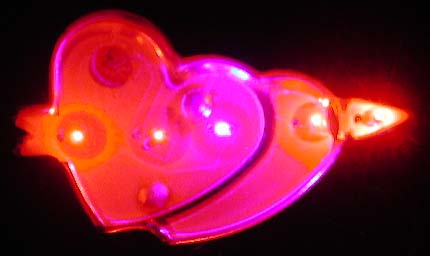FWP:
SETS == EK
ARCHERY: {6,2}
GAZE: {10,12}
JIGAR: {2,1}
The beloved's glance is the ultimate arrow. While in {30,2} the glance-arrow simply pierces both heart and liver, here it does more. First it goes through the heart and then through the liver, making both of them 'willing' or 'consenting' with one single gesture. The heart and liver are separate enough to be two stops in a flight trajectory, but together enough to both respond to a single gesture. Here, they're not just 'pierced' as in {30,2}, but made, more ambiguously, to agree or consent to something. To what? To their own destruction? To an absolute submission to the beloved's will? To share the pain of a single arrow, or the pleasure of a single adā , between them? The impossibility of deciding is, needless to say, part of the enjoyableness of the verse.
Then after the heart-liver itinerary, the glance-arrow, most
characteristically, simply keeps on going, to parts unknown. The verb form kar
gaʾī -- short for kar ke gaʾī -- makes its
continued travel quite clear. (Compare the use of kar gaʾe
in {97,3}.) Which opens up one more possibility:
that the heart and liver were made to 'agree' or 'consent' to the glance-arrow's
cruel, fickle onward travel. The beloved's arrow-glance mowed them both down as efficiently as possible, and without even a moment's pause was off to new conquests. Or perhaps, as Bekhud Dihlavi thinks, the ghance then rebounded and returned to the beloved. Oh, the deadliness of that little kar
gaʾī !

Nazm:
That is, both heart and liver had longed for this arrow. (169)
== Nazm page 169